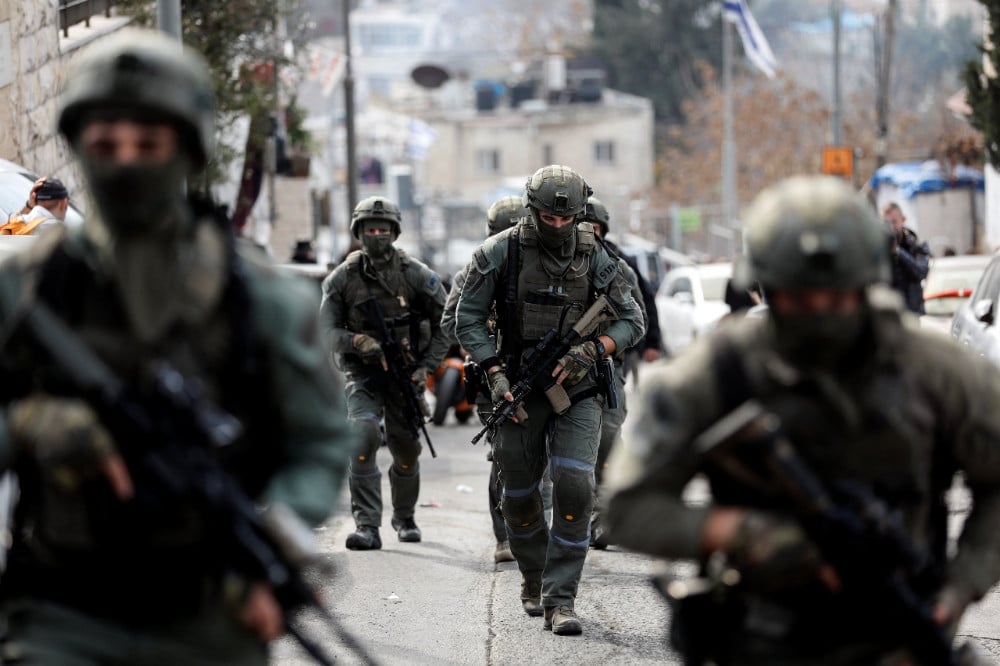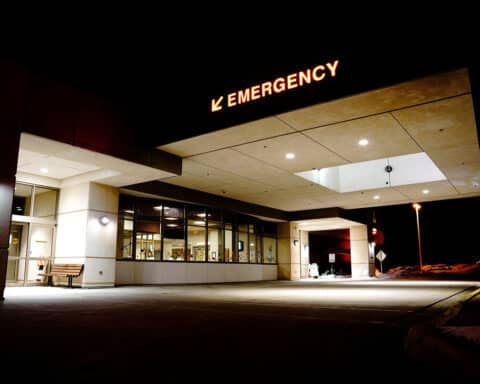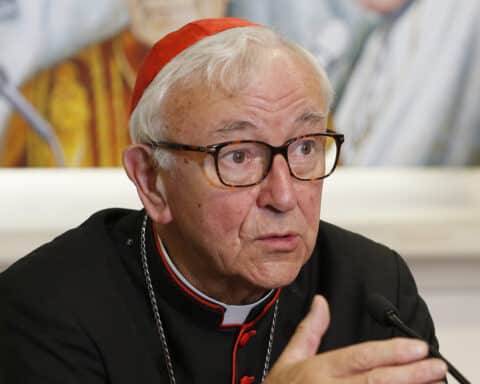JERUSALEM (OSV News) — Religious and world leaders condemned the violence that engulfed Jerusalem and the West Bank over the weekend, leaving 10 Palestinians and seven Israelis dead. The violence pushed tensions to an all-time high in recent years and created fears of yet another wave of reciprocal attacks.
Landing in Israel on a pre-scheduled trip, U.S. Secretary of State Anthony Blinken condemned the “shocking” Jan. 27 terrorist attack that took place outside of a Neve Yaakov synagogue in Jerusalem following Sabbath prayers on International Holocaust Memorial Day. He called on Israelis and Palestinians to not inflame tensions amid the deadly surge of violence. Blinken met with Israeli Prime Minister Benjamin Netanyahu and planned to meet with Palestinian Authority President Mahmoud Abbas in Ramallah Jan. 31.
The shootings took place following days of violence in the West Bank and Gaza, and another attack left two Israelis injured just outside of the Old City in the Palestinian village of Silwan where Jewish settlers have established themselves and an archaeological site. Nine Palestinians — who according to Israel were members of an Islamic Jihad terrorist cell — and one civilian, an older woman, were killed.
A 13-year-old Palestinian boy was identified as the shooter in the Silwan attack, and a 14-year-old Israeli boy was among those killed in the Friday shooting.
Pope Francis expressed his “great sorrow” on hearing the news of the attacks. “The spiral of death that increases day after day does nothing other than close the few glimpses of trust that exist between the two peoples,” he said following his weekly Angelus prayer Jan. 29.
“From the beginning of the year, dozens of Palestinians have been killed during firefights with the Israeli army. I appeal to the two governments and to the international community so that, immediately and without delay, other paths might be found that include dialogue and a sincere search for peace,” the pontiff added.
U.N. Secretary-General António Guterres strongly condemned the synagogue attack in a Jan. 27 statement, noting that it was “particularly abhorrent that the attack occurred at a place of worship” and on the commemoration of International Holocaust Remembrance Day.
“There is never any excuse for acts of terrorism,” he said. “They must be clearly condemned and rejected by all.”
In the wake of the attacks, Netanyahu, who was just sworn in to office for the sixth time in December with the most extreme right-wing and religious government in Israel’s history, vowed punitive measures. Israeli police have sealed off the home of the Palestinian gunman identified as Alqam Khayri, and are preparing to demolish the family house. Members of Khayri’s family also were summoned by the police.
Amid the heightened tensions, Palestinians reported alleged revenge attacks by vigilante settlers in the West Bank. Palestinians posted videos of a torched car and burning house and said other Palestinian cars had been damaged by settlers. Israeli police said they were investigating the incidents.
In a Jan. 29 statement following the bloody weekend, the Patriarchs and Heads of Churches in Jerusalem called on all parties to practice restraint and self-control.
“Everyone must work together to defuse the current tensions and to launch a political process based upon well-established principles of justice that will bring about a lasting peace and prosperity for all,” they said in the statement.
“Consonant with this, in these most difficult of times we call upon all parties to reverence each other’s religious faith and to show respect to all holy sites and places of worship,” they added.
Armenian residents of Jerusalem’s Old City posted on Facebook information about two altercations that took place on the night of Jan. 28. They involved confrontations between radical settlement youth and Armenian residents of the city including an incident of some Jewish settler youth trying to climb the Armenian convent’s wall. They allegedly wanted to take down the monastery flag as a group of mourners were leaving a memorial event at the convent. A confrontation ensued and the settlers attacked the Armenians with pepper spray and sticks, according to the report.
The post on the Jerusalem’s Armenian Quarter Facebook page includes a video showing the police beating and arresting one of the Armenian young men — including sitting on him — and noted the attack came shortly after racist graffiti was scrawled on the convent walls a few weeks ago.
“The Israeli police are treating these attacks on our ancient religious community very lightly. The absence of any deterrence by the police is to be blamed,” the community group wrote. “We call on the Israeli government to take immediate action to stop these vandalistic attacks.”
The Christian-owned restaurant located at the New Gate of the Old City was attacked on the evening of Jan. 26 by a gang of radical settler youths as Jewish-Israeli, Arab and tourists were dining at outdoor tables.
Prominent Christian activist and director of the International Center for Consultations, which provides consultation services to diplomatic missions, pointed to the “radicalization” of the Israeli government by its extremist members and to the ailing Palestinian Authority leading youth from both groups into radical actions. The Israelis, he underlines, are feeling empowered toward violence and the Palestinians lack hope and faith in their leadership.
“I fear we are witnessing a polarization within Israel, and between Israel and the Palestinians, while third parties are not really rushing in yet with alternatives,” Wadie Abunassar told OSV News. “With the absence of capable and willing third parties I feel we will continue witnessing some sporadic violence.”
However, he said, the violence will fall short of a third Palestinian intifada, or uprising, because Hamas in Gaza prefers not to engage with Israel in another war right now.
Judith Sudilovsky writes for OSV News from Jerusalem.





